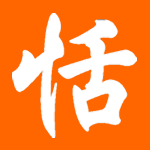to: tiangotlost@gmail.com
date: Thu, Apr 21, 2011 at 4:07 PM
subject: another stupid tattoo question
Dear Tian,
I just ran across your blog and love it!
Question: about ten years ago I took the character for "Courage" that I found in a Chinese Dictionary into a tattoo parlor. I really wanted the character for "courage" on my back, but the dictionary said that the character also stood for "gall bladder."
I wasn't sure that I actually wanted the character for "gall bladder" on my back, so when I saw a character that also supposedly meant "courage" on a sign full of symbols and pictures hanging on the tattoo parlor wall I said to myself, "tattoo parlors don't lie!" and asked for that one instead.
I was recently told by a Chinese friend that my tattoo actually says "Dog Passing."
(I've known for years that the second character says "passing," but only recently found out about the "dog" part. I was told that this particular symbol for dog is archaic, which is why many of the non-Asian students of Chinese and Japanese that I asked before didn't know it....)
I'm hoping you might verify.
Thank you!

It is not "dog passing" or 犬過.
大過 [たいか] serious error; gross mistake


It is so poorly done I could see either 大过 or 犬过。It depends on whether that dot at the top right of the left is for the 犬 or the 辶 radical. Perhaps 大过 seems a bit more likely though.
ReplyDeleteOh, that's really a classic. This should go in the handbook. :-)
ReplyDeleteYeah, it was a gross mistake to trust that tattoo parlor.
But why should that character (if the dot is assumed to belong to the "dog") be considered archaic?
I don't quite know why someone would call the character 犬 "archaic." It is the most common word in modern Japanese for the ordinary domestic dog. I think that 狗 is more common than 犬 in modern Chinese, though. Perhaps a Chinese speaker can set us straight.
ReplyDeleteI don't think that 犬 is archaic in Chinese either. It is used in 狂犬病, mad dog disease or rabies as we call it.
ReplyDeleteNot something you talk about on a daily basis, but also not archaic.
犬and狗 are synonyms ;) we Chinese use 狗 more than 犬. Indeed, 犬is archaic,we don't point at a dog today and say 犬,we'd say 狗. Most archaic essays I studied used 犬more than 狗, fyi
ReplyDeleteThe part about the character being archaic seemed to be speculation to explain why nobody recognized it. A simpler explanation is that it's so poorly written as to be completely unrecognizable.
ReplyDeleteThere are a lot of words in English that are archaic in isolation, but part of currently used compound words--we don't say "cob" for spider anymore, but "cobweb" is as common as "spiderweb". Is this a similar situation with 犬, where you wouldn't refer to someone's pet 犬 but it is still used in compounds?
ReplyDeleteYou want archaic? 大過 is the name of Hexagram 28 in the "I Ching", where it means something like "Greatly Exceeding" and would no doubt be taken as something positive.
ReplyDelete